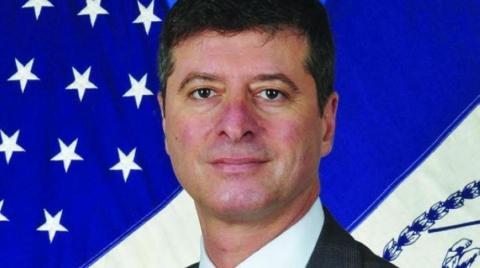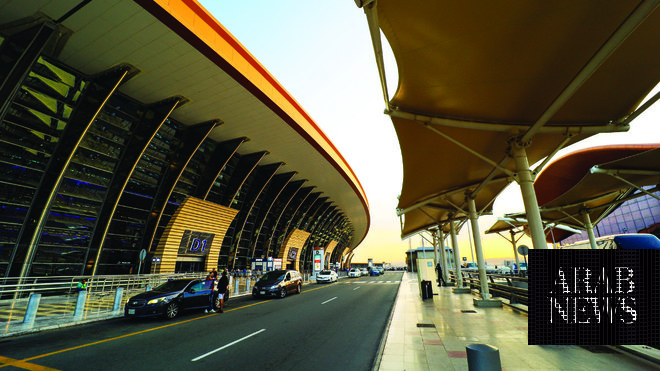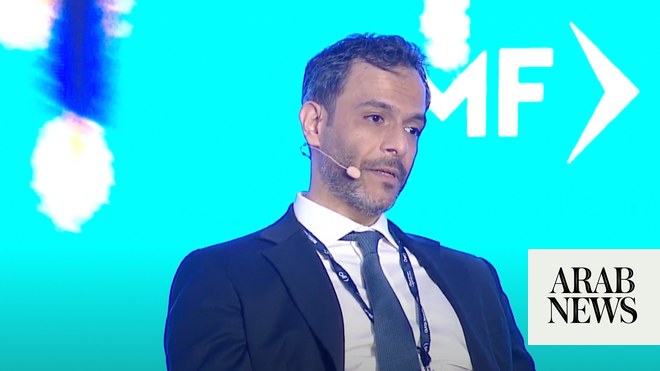
Host of pivotal initiatives reaffirm dedication to fostering financial innovation and inclusivity
RIYADH: As Saudi Arabia strides forward with its Vision 2030 objectives, the Kingdom’s central bank is at the forefront, driving a host of pivotal initiatives and greenlighting various enterprises in 2024. These actions reaffirm the nation’s dedication to fostering financial innovation and inclusivity.
The Saudi Central Bank, known as SAMA, has ushered in a wave of programs and approvals this year, ranging from the introduction of secure account services to engaging in high-level discussions on reserve management and expanding investment training endeavors.
Additionally, it has issued licenses to bolster payment and crowdfunding services, fortifying its pivotal role in the Kingdom’s economic diversification.
Here are some of the significant developments and initiatives undertaken by SAMA this year:
Enhancing security and accessibility
In May, SAMA announced the launch of a new initiative named “View My Bank Accounts” for individual bank account holders. The new service aims to enhance reliability and reduce the risks of suspicious transactions, unauthorized account use, and impersonation.
SAMA added that it is continuously working on developing electronic financial transactions in accordance with international best practices.
Navigating macro-financial challenges
In April, the apex bank convened a high-level meeting on reserve management, targeting the complexities of the current macro-financial environment. The event united reserve managers and experts from central banks across the Middle East and North Africa region, alongside participants from other apex financial institutions, to delve into the latest trends in managing foreign exchange reserves.
SAMA Governor Ayman Al-Sayari highlighted how the evolving global landscape introduces new challenges and opportunities for central bank reserve managers. He emphasized the significance of such high-level meetings in navigating the complexities of the current macro-financial environment.
Investment immersion program
In another development, the Saudi Central Bank initiated the registration process for its fourth edition of the Investment Immersion Program in April, aimed at nurturing and employing local investment professionals.
Developed in collaboration with the Wharton School of the University of Pennsylvania, alongside major global banks and asset managers, this program offers a comprehensive curriculum featuring academic courses and practical training across various investment domains.
“The program offers an advanced technical course, on-the-job training with international banks and assets management companies, and job-rotation in the investment deputyship at the Saudi Central Bank under the supervision of experts in asset management and global financial markets,” said SAMA.
Additionally, participants will benefit from continuous development programs aimed at enhancing their technical investment skills, as well as a range of distinctive employment perks.
The program is tailored for Saudi nationals below the age of 27 who hold bachelor’s or master’s degrees in finance, accounting, economics, statistics, or business-related fields from either domestic or accredited international universities.
Steering financial stability
In February, the central bank, represented by SAMA Gov. Al-Sayari, co-chaired the Financial Stability Board Regional Consultative Group for MENA meeting in Riyadh.
Also in attendance were Hassan Abdulla, governor of the Central Bank of Egypt, and Klaas Knot, chair of the Financial Stability Board.
Discussions during the meeting centered on the challenges related to global and regional financial stability vulnerabilities, including the implementation of the global regulatory framework for crypto-asset activities.
Additionally, the meeting analyzed lessons learned from the turmoil that affected the global banking sector in 2023, along with the financial risks arising from the high-interest rate environment and non-bank financial intermediation.
Al-Sayari emphasized the MENA region’s emergence as a global development hub, driven by strategic location and ongoing economic diversification efforts. He also highlighted the International Monetary Fund’s affirmation in its Regional Economic Outlook that MENA is resilient to adverse macro-financial risk scenarios.
Al-Sayari underscored the importance of devising plans that support financial stability while aligning with the economic and financial conditions of the region, fostering interrelation between its economies.
Members also received an update on the FSB’s work program for 2024 and discussed the FSB’s report on initial lessons learned from the banking disturbances in 2023.
The FSB’s Regional Consultative Group for the MENA region includes finance and regulatory authorities from Saudi Arabia, Kuwait, and the UAE, along with Bahrain, Oman, and Qatar. Additionally, it encompasses Egypt, Algeria, and Jordan, as well as Lebanon, Morocco, Tunisia, and Turkiye.
Fostering financial innovation
Throughout the year, the central bank has been proactive in granting licenses to various payment and crowdfunding service providers.
It commenced the year by authorizing Thara to offer debt-based crowdfunding solutions. Concurrently, SAMA also granted licenses to Network International Arabia for point-of-sale payment services and to Barraq for e-wallet services.
HIGHLIGHTS
• The Saudi Central Bank, known as SAMA, has ushered in a wave of programs and approvals this year, ranging from the introduction of secure account services to engaging in high-level discussions on reserve management and expanding investment training endeavors.
• SAMA Governor Ayman Al-Sayari underscored the importance of devising plans that support financial stability while aligning with the economic and financial conditions of the region, fostering interrelation between its economies.
“This decision reflects SAMA’s endeavor to support the financial sector, increase efficiency of financial transactions, and promote innovative financial solutions for financial inclusion in Saudi Arabia. SAMA emphasizes the importance of dealing exclusively with authorized financial institutions,” said the apex financial institution.
In February, the central bank extended authorization to Alpha Arabia Finance Co. to engage in financing activities for small and medium enterprises.
In April, SAMA licensed Funding Souq to provide debt-based crowdfunding solutions, thereby bringing the total number of such companies operating in the Kingdom to 10.
Sohar International receives SAMA’s nod
In January, Sohar International, the second-largest bank in Oman, received a non-objection certificate from SAMA as it set its sights on expanding into Saudi Arabia.
This strategic move aligns with the bank’s growth strategy, demonstrating its capability to identify sustainable expansion opportunities.
The bank’s entry into the Saudi market is anticipated to assist Omani corporations seeking to enter the Kingdom’s market.
“At the core of the bank’s strategic expansion lies a synthesis of personalized, customer-focused offerings and avant-garde services. These form the linchpin of the bank’s overarching strategy, aiming not only for growth but also for the sustained enhancement of the customer experience in an ever-evolving financial landscape,” said Ahmed Al-Musalmi, CEO of Sohar International.
Overall, SAMA’s proactive measures underscore its commitment to supporting Saudi Arabia’s economic growth and resilience in an ever-evolving global financial landscape.












